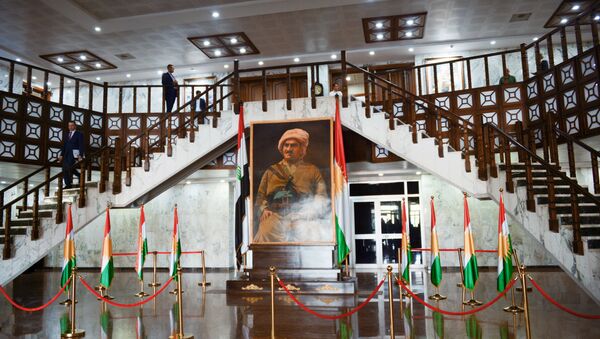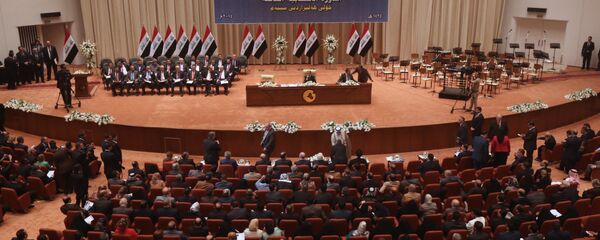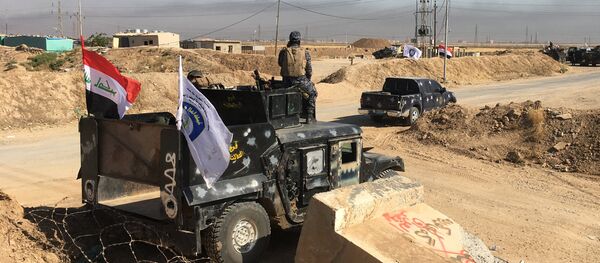Radio Sputnik's Loud and Clear host John Kiriakou discussed the referendum with Ali Musawi, a war correspondent based in Iraq, and Kani Xulam, director of the American Kurdish Information Network.
According to the announcement, Erbil offers "an immediate ceasefire" and to "stop all military operations in Kurdistan" in order to "fulfil the obligations before the people of Kurdistan and Iraq."
Musawi said the ceasefire has been welcomed by both sides because if the conflict escalates, it will lead to a far worse outcome and probably even start a civil war within Iraq, "which terrifies everyone, not just in the country, but in the whole region."
The situation is being complicated, though, by accidental shellings on both sides, with the two parties blaming the other for ceasefire violations. Musawi says the ceasefire will remain fragile, at least until the sides actually sit down and talk.
Xulam points out that the issue with the Kurds in Iraq is that they have disagreements with the Baghdad government over whose authority some key territories should fall under. According to the Iraqi constitution, the allegiance of those territories must be decided by referendum — something that Baghdad has never done.
Despite Kurdish authorities announcing they are willing to share the riches, the central government seems to prefer using military force to keep them all. The infighting between different Kurdish militarized political parties has led to Kurds losing control over a sizable portion of their territory to Baghdad already.
"The Iraqi security forces really push us to the edge of the cliff. Whether we agree or disagree, in post-Saddam Iraq, there should be no place for violence," Xulam said.
Holding a referendum over disputed territories is not an easy feat, Musawi notes: according to the law, it can only be held after all the displaced people return to their homes and a census is done.
Despite the benefits of the ceasefire, the Erbil announcement has also sparked a sizable uproar among those who perceive as a step back, Musawi says. Among those is the Gorran movement, also known as Movement for Change — the third largest Kurdish party and, ironically, one that does not have a military branch.
Unfortunately, finding democratic solutions to issues like this is not common in Iraq, Xulam laments. Baghdad has had plenty of opportunities since the toppling of Saddam Hussein in 2003 to solve the Kurdish problem via referendums, but it did not, despite pressure from the United Nations.
"It's too much to expect for the region to just become democratic in 10 years," he said.
Therefore, the prospect for talks is not optimistic.






